January 2018
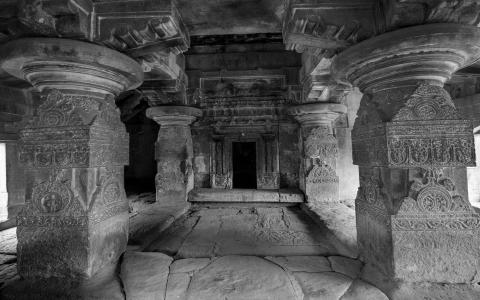
Viśvanātha who wrote Sāhityadarpaṇa starts off by criticizing the attributes of poetry as described by Mammaṭa and others, and ridicules the suggestion that comes from the topic or the object of poetry. Such suggestion, in his opinion, cannot be poetry. From his perspective, sentences filled with emotion make up poetry and nothing else, for:
देवदत्तो ग्रामं याति इति वाक्ये तद्भृत्यस्य तदनुसरणरूपव्यङ्ग्यावगतेरपि काव्यं स्यात्!
(Sāhityadarpaṇa...
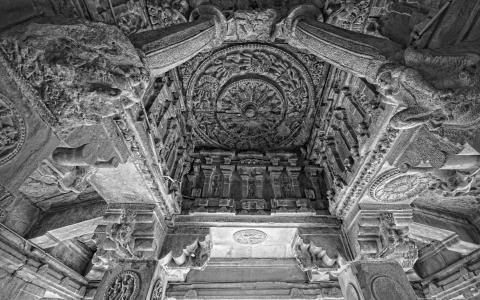
Moving on to one of the greatest masters of all schools of thought and a very creative and gifted genius Abhinavagupta, we see humour sparkling aptly in both his excellent and incomparable commentaries Abhinavabhāratī (on the Nāṭyaśāstra) and Locana (on the Dhvanyāloka). Both his works, along with excellent usage of Sanskrit, portray a beautiful style of writing interspersed with his natural penchant for humour and thus is a source of joy for...
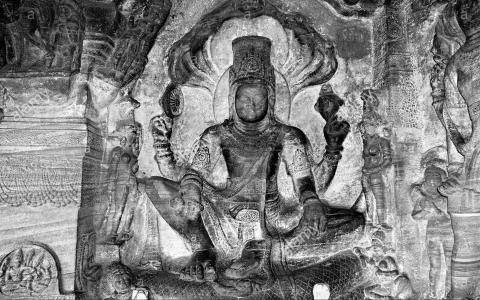
जगत्सन्दर्भसौन्दर्यसंवित्संस्पन्दसाक्षिणम्।
प्रणमामि सितस्मेरप्रणवं गणनायकम् ॥
Humour is a divine gift to humans. While experiencing humour is wonderful, analyzing it can be quite difficult. It’s easy to find passages in treatises of alaṅkāra-śāstra (loosely translated as ‘Indian Aesthetics’) about analysis of humour along with and in comparison with other rasas (aesthetic experiences), guṇas (literary qualities), alaṅkāras (loosely ‘figures of...
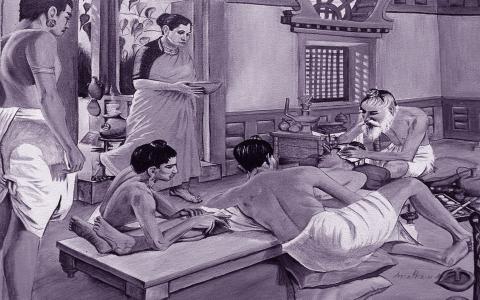
The author wrote this open letter as part of a recent assignment. The letter summarises and adds to his earlier essays on related topics. The assignment was to “Imagine that the Prime Minister has sought your advice for institutionalising Ayurveda in India and abroad. He wants you to tell him the current challenges and solutions to overcome them.” – Editors
Dear Prime Minister,
After decades of concerted efforts aimed at throwing overboard our...
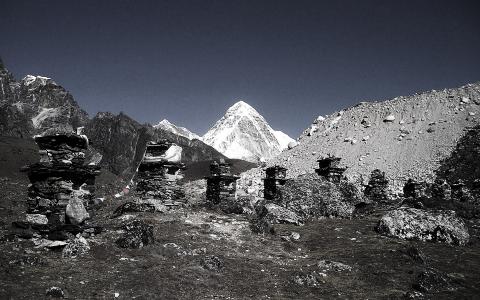
Back at Hastināpura, Gāndhārī too was pregnant; even as she was carrying, she heard that Kuntī had given birth to Yudhiṣṭhira. She hadn’t given birth even after two years of pregnancy; the pain was unbearable too. So one day, extremely upset, she squeezed her abdomen and pushed out the foetus. The foetus came out as a ball of flesh. “Is this what Īśvara blessed has me with in the past; is this what Vyāsa promised!” Thinking thus with disgust,...

१
सामान्यतया वदामः किल वयं लोके “इयमस्माकं प्रकृतिः,” “तत्तस्य नैजम्,” “इदं मे नैजम्” इत्यादीनि वचांसि। कोऽसौ प्रकृतिः? किं नाम नैजम्? आ जनेर्मानवेषु समन्विता भवन्ति केचन पदार्थाः, काश्चन शक्तयो गुणप्रवृत्तयश्च। मानवेन कथं वेदं वस्तुजातं समासादितम्? येन केनापि विधिनेति वक्तव्यम्—जन्मान्तरेण जातं, वरत्वेन लब्धं, पूर्वकर्मफलरूपेण संप्राप्तं वा। यत्किमपि भवतु नाम। निष्कर्षस्तावदयं यन्मनुष्यस्य जन्मावसर एव तत्तस्य सहजातम्। इदमेव हि तस्य नैजम्।...
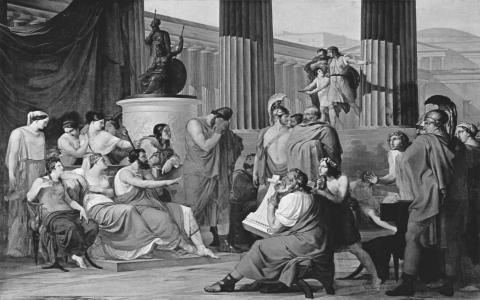
The epics, Iliad and Odyssey of Homer, largely complement each other in terms of what they offer to connoisseurs. Using the terminology of the rasas (flavours of emotions), the predominant rasa in the Iliad, which also acts as the sthāyi-bhāva, is valour (vīra). To sustain the undercurrent of valour for over 15,000 lines is a great challenge, which has been met successfully only by poets like Vālmīki, Vyāsa and Homer. This indeed gives us the...

Slaying of the rākṣasa Kabandha is one of the fascinating episodes in Ādikavi Vālmīki's Rāmāyaṇam. This oft-quoted episode appears at the end of the Araṇya-kāṇḍa (cantos 69-73). After Rāvaṇa abducts Sītā, Rāma and Lakṣmaṇa move southward in search of her. During their journey, they come across the impassable Krauñca forest, where Kabandha seizes them. Gigantic and grotesque, the rākṣasa had no head, neck, and legs. It was just ruṇḍa without...
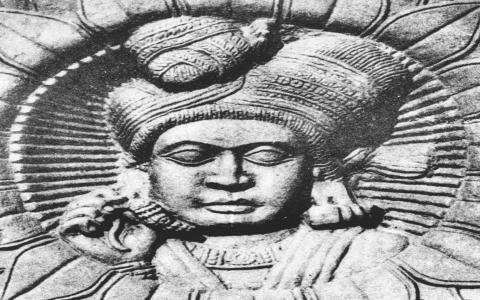
Marxist-Communist historians claim that because Pushyamitra Shunga was a brāhmaṇa, all events that occurred during his period were merely the revolt of brāhmaṇas. These incidents symbolize the enmity that brāhmaṇas had against Ashoka and his heritage. Contrary to their claims, varṇa doesn’t occupy a significant place in this.
The Shungas weren’t in power for a long period. The Kanvas, who succeeded them were brāhmaṇas too. If the Shunga reign...

This is the second part of the two-part article published on the occasion of the 2018 Tyāgarāja Ārādhana Utsavam, which falls on today's date. — Editors
Bhakti
From his compositions, it is clear that Tyāgarāja suffered a lot. He remained poor throughout his life. More than that, he was tormented by people who did not understand or empathise with his spiritual yearnings. In his celebrated Kumārasambhavam, Kālidāsa says, “...
